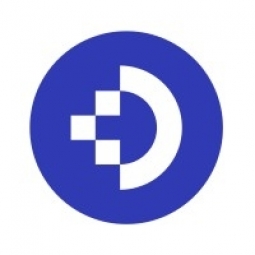Customer Company Size
SME
Region
- Europe
Country
- Belgium
Product
- DocuWare
- GODIS/400 ERP
- IBM i520 system
Tech Stack
- Document Management System
- ERP System
- IBM System i environment
Implementation Scale
- Enterprise-wide Deployment
Impact Metrics
- Productivity Improvements
- Cost Savings
- Customer Satisfaction
Technology Category
- Application Infrastructure & Middleware - Data Exchange & Integration
- Platform as a Service (PaaS) - Data Management Platforms
Applicable Functions
- Sales & Marketing
- Business Operation
Use Cases
- Supply Chain Visibility
- Inventory Management
Services
- System Integration
- Software Design & Engineering Services
About The Customer
Metalen Galler is a long-established Belgian company that specializes in the wholesale of iron and steel products. The company, which was founded in 1845 in Antwerp, has been run by the same family for generations. It has an excellent reputation across the country for its top-quality products and its company philosophy that strives for total customer satisfaction. The company has around 100 employees and operates from its headquarters in Antwerp, with branch offices in Mol and Hemiksem. The company's sales structure is divided into areas of steel products and iron products, with the latter consisting of three sub-departments of tools, occupational safety, and fixtures and fittings.
The Challenge
Metalen Galler, a Belgian iron and steel products wholesaler, was facing increasing pressure from competition and increasing demands from customers for attractive prices, flexible delivery options, and short processing times. The company's sales structure was divided into areas of steel products and iron products, resulting in a decentralized storage and separate processing methods. This led to time-consuming searches as more copies were made and documents were filed more than once. The annual volume of 200,000 documents created huge amounts of paper, leading to bad morale among employees. The company needed to find a way to increase the efficiency of its business processes without neglecting customer service.
The Solution
Metalen Galler decided to implement a Document Management System (DMS) to digitalize almost all business documents throughout the company, starting from customer queries to offers, material certificates, orders, parts lists, and delivery notes right through to incoming and outgoing invoices. The company chose DocuWare for its functionality and user-friendliness. The DMS project started in October 2008, and by January 2009, the first digital business processes, including the processing of customer orders, were approved for operation. The company also decided to process orders electronically using document workflow processes. The integration of the Windows-based DocuWare server in an IBM System i environment, the conversion of separate fax machines to one central digital fax server, and numerous minor software adjustments were part of the solution.
Operational Impact
Quantitative Benefit

Case Study missing?
Start adding your own!
Register with your work email and create a new case study profile for your business.
Related Case Studies.

Case Study
Remote Temperature Monitoring of Perishable Goods Saves Money
RMONI was facing temperature monitoring challenges in a cold chain business. A cold chain must be established and maintained to ensure goods have been properly refrigerated during every step of the process, making temperature monitoring a critical business function. Manual registration practice can be very costly, labor intensive and prone to mistakes.

Case Study
Hospital Inventory Management
The hospital supply chain team is responsible for ensuring that the right medical supplies are readily available to clinicians when and where needed, and to do so in the most efficient manner possible. However, many of the systems and processes in use at the cancer center for supply chain management were not best suited to support these goals. Barcoding technology, a commonly used method for inventory management of medical supplies, is labor intensive, time consuming, does not provide real-time visibility into inventory levels and can be prone to error. Consequently, the lack of accurate and real-time visibility into inventory levels across multiple supply rooms in multiple hospital facilities creates additional inefficiency in the system causing over-ordering, hoarding, and wasted supplies. Other sources of waste and cost were also identified as candidates for improvement. Existing systems and processes did not provide adequate security for high-cost inventory within the hospital, which was another driver of cost. A lack of visibility into expiration dates for supplies resulted in supplies being wasted due to past expiry dates. Storage of supplies was also a key consideration given the location of the cancer center’s facilities in a dense urban setting, where space is always at a premium. In order to address the challenges outlined above, the hospital sought a solution that would provide real-time inventory information with high levels of accuracy, reduce the level of manual effort required and enable data driven decision making to ensure that the right supplies were readily available to clinicians in the right location at the right time.











